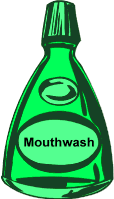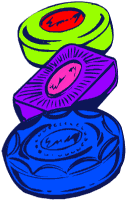
There was no moon. The world was a bubble of pitch that had dilated until it reached the very stars in the heavens. I should not see a single gleam of light, should not profit by the faintest landmark. Carrying no wireless, I should receive no message from the earth until I reached the Nile. It was useless to try to look at anything other than the compass and the artificial horizon. I might blot the world out of my mind and concentrate my attention upon the slow pulsation of the narrow thread of radium paint that ran along the dark background of the dials...
But you, by the grace of an ordeal in the night which stripped you of all that was not intrinsic, you discovered a mysterious creature born of yourself. Great was this creature, and never shall you forget him. And he is yourself." (from Wind, Sand, and Stars, by Antoine de St. Exupery)
As I write, on 8/16, this week North America has just had its worst ever blackout, with 50,000,000 or more folks, in multiple states and a Canadian province, all suddenly thrown back into a world in some ways reminiscent of a couple hundred or even a thousand years ago. While most people behaved quite well during the crisis, it is reported that three died as a direct consequence of the power breakdown and that millions, unable to get home and essentially living on the street as darkness descended, were rather anxious, though it has been millennia since most humans had to fear carnivorous cats or wild animal packs each day as the sun would set.
Of course, the majority of us have known blackouts before, though not on the recent scale. A vital fuse may have malfunctioned or a thunderstorm knocked out the electricity in our neighborhood. It is then usually a fun time, our mild fears tinged with excitement and the novelty of breaking out and using candles, small lanterns, flashlights, or, in a few cases, backup generators.
By coincidence, a few hours before uploading this issue and putting it online, we and all around us suffered a blackout, just as Valerie was busy completing the main graphic for page one. We had no easy way of knowing, naturally, if this involved another huge swath of continent or were simply one of many local mishaps. Fortunately, it turned out to be the latter.
During World War II, many cities around the world had blackouts as a matter of course. One never knew but what, before dawn, a bomb might bring an end to existence there in the enforced darkness. On our west coast the threat was seen to be from the Japanese. In Germany it was from the Russians, Americans, or British. Later the Japanese would worry as night fell what terrors the U.S. would bring during the long hours of night.
Contemporary war-torn Iraq still endures perennial blackouts, and these have become a factor in how that country's citizens relate to its liberators/occupiers.
In some of our own largest metropolitan areas, darkness even now brings with it increased cause for concern over what our fellow man may do in the absence of light.
Few today are acquainted, though, with the full terror of being without either natural or artificial brightness, as our primitive hominid ancestors may have felt it before the tamed use of fire, much less modern electrical illumination, communications, computing, commerce, transportation, and appliances. Even less may know the truly elemental horror of the hours after dusk, as described vividly in the superb little story by Isaac Asimov, "Nightfall."

Our experiences of blackouts are usually just somewhat bizarre interludes in a host of more humdrum days and nights. So it was for me in 1967.
I was living and working then in Oakland, CA, as a soap smeller and toothpaste taster (officially a quality control inspector) for Colgate-Palmolive. My regular shift was from 7 AM to 3:30 PM, with a half-hour lunch break.
The job entailed going hourly to each of the plant production lines and checking each product on a variety of criteria. There were usually eight or so lines, sometimes as many as a dozen, going at once.
I'd look for things going obviously wrong, like talcum powder coming out when it was supposed to be toothpaste, mouthwash that was purple instead of aqua, shampoo too viscous to easily pour out of the bottle, powdered cleanser falling out of its cardboard can because the tape over the top was missing, bleach that looked and smelled like ammonia, and so on.

Every two hours I would also take samples back to the lab and analyze them to assure they had approximately the correct density, chemistry, specific gravity, consistency, resistance to heat or cold, and whatnot.
Everything was properly recorded, logged, and filed away. In extreme cases, I had the authority to order a quantity of production salvaged or recycled. Nothing was ever thrown out. And, often as not, when I would slap a recycle sticker on a product lot, hopefully at least just before it had been loaded by lift-trucks onto waiting 18-wheelers and hauled away, my boss, who was both the quality and production manager (and guess which title carried the most weight), would quickly draw his slide-rule out of its little leather holster, do some rapid calculations, point out to me that, in the national scheme of things, this whole day's production of talcum-powder-tasting toothpaste or ammonia-bleach was just a drop in the bucket, so to speak, that the government allowed us wide tolerances as long as our quality was OK on average, and then release everything I'd held, to be sent on and distributed to the wholesalers and retailers just as it was.
My job thus carried little prestige. I was a necessary evil for both white- and blue-collared workers but about as popular as a Jonah on a whaler. There were a few exceptions, and I eventually would find the production line hourly employees more colorful, interesting, and friendly than the other salaried administrative workers.
Sometimes things got quite hectic. When twelve long production lines were running, each with eight or ten hourly checks to be made and recorded, plus the lab sample evaluations, frequent snafus to be corrected, and racing pallet-hauling lift-trucks to be dodged, there was little opportunity to put on the pounds.
On a frenetic afternoon, as typically three or four things were going wrong with the product or packaging at once, I had to shut a couple lines down and run to stop a huge load of merchandise, filling out the hold or recycle stickers as I went.
There was a robotic pallet shifter just before the lift-truck drivers would pick up the pallets off a long run of rollers. All palleted product was funneled toward this monster machine. It would take the filled pallets one at a time and, in about a second, turn them ninety degrees and thrust them onto the last rollers.
If I didn't get the recycle stickers attached before the robotic shifter turned and moved the pallets on, it was too late. I wasn't allowed into the final lift-truckers' pallet pick-up area, not because anyone was worried about my health, but since if I got in the way it cut down on the plant's daily production.

That time I was cutting it close. I had taken too long dealing with hassles farther up the lines. Now a huge batch of bad product was about to go out to the stores, soap bars that looked and smelled a little like barf, instead of the fresh, hygienic lather source evocative of springtime that was intended and advertised.
I feverishly filled out the last hold-recycle sticker, rushed between the six-foot safety barrier and the robot, and successfully slapped the sticker into place, just as the monster machine, together with its full pallet load, started its rapid ninety-degree shift.
The thing about the safety barrier was that it allowed entry from the sides before the robot began its turn. But it was made of a fine, rigid wire and steel struts mesh. Once inside it, there was no getting back out through it. It was impenetrable for anything wider than a couple inches. And the thing about the robot was that it allowed a few inches of clearance from the safety barrier but only when in its rest position.
As the robot and pallet would turn, Euclidean geometry came into play. Once the machine and its load's greatest diagonal width across was perpendicular to the center of the barrier, essentially the longer hypotenuse of a right triangle, formed by the diagonal width and the robot and pallet sides, all but about an inch of the clearance was gone and there remained no room at all for a young quality control inspector's trunk and legs.
The implications of this dawned on me a moment after, with a roar, the robot began its latest rapid pallet shift.
I then executed a high-jump leap as if my life depended on it and almost accomplished the Olympian feat. But the machine caught and ripped up my lower pants legs and, biting ever so briefly into the flesh, left me with a few minor, scary lacerations to remind me of my folly.
But I digress.
If we had a lot of product to put out, the plant would very occasionally run twenty-four hours a day. Usually there was just a daytime and an evening (3:30 PM-midnight) schedule. If the later quality control inspector didn't show up, called in sick, and so on, I got tagged for a double-shift.

This particular day was like that, and we were well into the second eight and a half hours. All was well with most of the processing, but everyone's nerves were a little frayed over at one of the laundry detergent lines. The production equipment generally seemed old and was often breaking down. In this case, Jake, the area mechanic, was trying again and again to get the box flap glue jets adjusted just right, but it wasn't working out. Hundreds of cartons of detergent had already been produced with lids not properly sealed, their slightly sticky but unstuck flaps raised like flags as each box rolled down the line.
So, as he and everyone knew I had to do, for about the fifth time that night I ordered the production ended for yet another adjustment. "OK, Jake. Shut it down!" I yelled over the noise of the machinery.
With a sigh he pushed the line-stop button and reached in with a long screwdriver to make the glue machine alterations.
Only this time he must have accidentally touched the wrong wires together. There was a loud electrical short sound and then a popping noise. We saw sparks coming out of the glue machine's innards and, simultaneously, the big area heater blowers stopped, all the other lines ceased, and the lights went out throughout the plant. It was suddenly as quiet and dark as a cave.
After a few moments, we realized the lights weren't going to come right back on. We speculated on whether a main circuit breaker might have been tripped.
Jake said he'd check the electrical panels. Someone produced a little cigarette lighter flame and, in a huddled group, we slowly and carefully made our way around all the machinery to another part of the building.
Eventually we guessed we weren't going to get things running again soon.
Jake made sure the master switches to all lines were off, in case electricity might start flowing again while we were away, and we all drifted out to the parking lot.

There we discovered that, as far as one could see in any direction, there were no lights whatever.
I had no vehicle then, but fortunately the buses were still running. One eventually picked me up and deposited me a few miles down the road toward Berkeley. The walk through the last few blocks to my room was especially eerie. Even at a considerable distance from the plant there persisted a deep, quiet, cave-like darkness.
The next morning the sun brought us relief, of course, from such formidably unalloyed night.
In twos and threes we'd meet one another and nervously, excitedly comment on how it had felt for we city folk to be in that almost silent blackness for so long.
On a battery radio someone had heard, they said, that the entire San Francisco Bay Area had been blacked out. People were wondering how such a thing could happen, with millions affected and no power for twenty miles to the north, east, and south.
"I can't imagine," I said. "Do you suppose it could have been something simple, like a freak electrical short that caused the whole power grid to overload?"
I never let on that Jake had just followed my instructions to "shut it down!"
For millions of years intelligent creatures have braved the thrill and uncertainty of nightly near total darkness, often in isolation and with no artificial respite from nature's stark reality. Those of us who have known only city slicker ways, so cut off from the awesome natural world that a few hours without our manufactured lights and conveniences bring shock and fear, might gain from a bit more direct involvement with the wonders of a darkened realm, for they may fill us with unexpected riches and add new depth and magic to our soujourn through this existence.